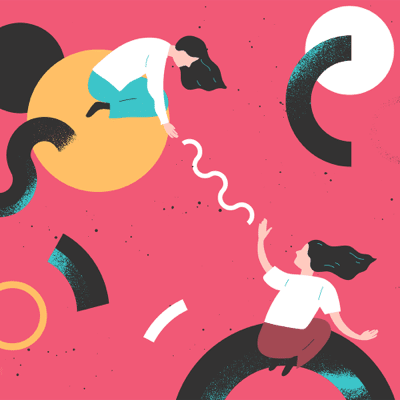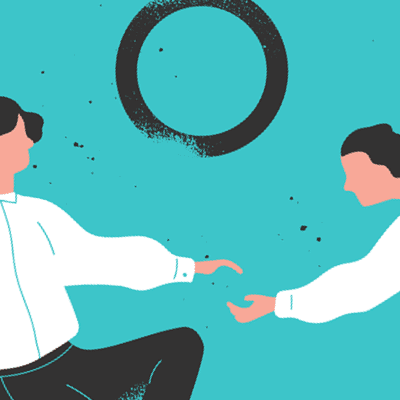I am affected by a case or have witnessed it with another person - what can I do?
You are affected yourself
Our current scientific system is characterized by manifold interpersonal dependencies. Moreover, scientific fields are often small, people know each other, and it is difficult to find objective and uninvolved persons. Although this may not be the preferred solution, in some situations it may make sense to wait until one is in a more secure position oneself (e.g., after the completion of a PhD) before confronting someone, if it is foreseeable that this will occur soon. The system as a whole, and especially subsequent scientists, benefit from addressing misconduct and demanding change. Nevertheless, one's own safety is always paramount during this process.
If you yourself have been affected by abuse of power, there are some first steps you can take. Below we have listed some options for you.
Regain security
Situations in which abuse of power happens are very difficult to endure and often bring with them a strong psychological burden. In general, and especially if you want to change something about your situation, it is important that you do so from a position where you yourself feel as safe and stable as possible. Talking to people close to you, for example, can help you to no longer feel alone with the situation. In addition, many institutions offer low-threshold psychological or psychosocial counseling services that can help you regain some security, work through what you have experienced, and plan next steps.
Seeking out points of contact
Institutions in academia typically offer a number of points of contact that you can turn to for advice and assistance. Depending on the nature of your case, the Equal Opportunity Officer, the Ombudsperson or the employee representative body (Staff Council, Works Council) may be a first point of contact. It is important to ensure that the confidentiality of the conversation is guaranteed. Often, the direct supervisor is named as the first contact person. Depending on the personal relationship, this can be a very good choice. However, unlike the other contact points mentioned, supervisors are not legally bound to confidentiality.
Find contact points that are (more) independent
There are often good reasons not to trust the institution's own local contact points. For example, because the people there are themselves involved in the case or are close to the people who are. In this case, it can help to turn to contact points that are located higher up in the institutional hierarchy. Often there is a central equality officer or ombudsperson who can act and help independently of the specific institution.
Network against abuse of power
Independent of institutions, you can contact the Network Against Abuse of Power in Science. We guarantee confidentiality, listen, and can help plan next steps. The network is composed of people who bring a wealth of experience in dealing with abuse of power in science at different places and positions in the scientific hierarchy. We are happy to use this knowledge to support you confidentially and on a voluntary basis in your situation. You can find out more about our advisory services here.
Documentation
It can often be very helpful to document specific incidents in detail. Note what happened to you, when it happened, what was said, and which people were involved and may be able to confirm the incidents. Also save relevant electronic communications (e-mails, text messages) for this purpose. On the one hand, this can serve to give yourself a clearer picture of the situation. Besides, such thought logs are often important tools for fleshing out allegations and finding witnesses to them should a confrontation occur.
Networking
If other people are also affected by the situation, it can be useful to network with them. On the one hand, this can help to work through what has been experienced and to exchange strategies for dealing with it. On the other hand, experience shows that accusations voiced by several people carry more weight.
You witness abuse of power against another person
If you are in a vulnerable position yourself, you can still support the victim of power abuse, but you should be careful not to endanger yourself in the process. In the acute situation, it may be useful to distract the perpetrator(s) or to get the victim out of the situation with a pretext in order to defuse the acute situation. In addition, you can offer the affected person your help and listen to them. Victims often feel alone with their difficulties, and a confidential conversation with a well-meaning person can go a long way toward restoring some security to the affected person.
If you find yourself in a position with influence you can use your influence to draw attention to the situation, confront the perpetrator(s), or draw attention to it in an appropriate place and demand change. Without the support of people like you, it is often difficult for victims to make their voices heard within their own institution. In particular, those affected in dependent positions can hardly demand changes themselves.



